Publications
Articles, publications, books, tools and multimedia features from the U.S. Institute of Peace provide the latest news, analysis, research findings, practitioner guides and reports, all related to the conflict zones and issues that are at the center of the Institute’s work to prevent and reduce violent conflict.
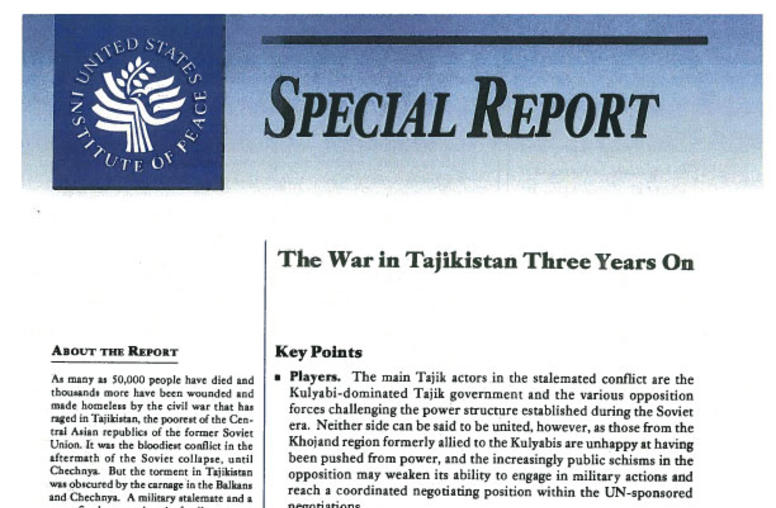
The War in Tajikistan Three Years On
As many as 50,000 people have died and thousands more have been wounded and made homeless by the civil war that has raged in Tajikistan, the poorest of the Central Asian republics of the former Soviet Union. On June 6, 1995 the United States Institute of Peace organized a forum on the Tajikistan conflict to explore prospects for negotiations and an end to the war. It included Ambassador Stanley T. Escudero, who had recently completed three years as the chief U.S. representative in the Tajik ...
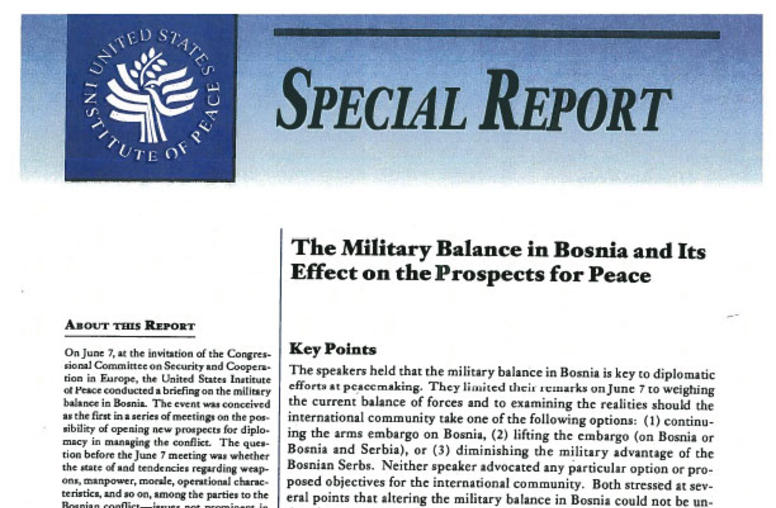
The Military Balance in Bosnia and Its Effect on the Prospects for Peace
On June 7, at the invitation of the Congressional Committee on Security and Cooperation in Europe, the United States Institute of Peace conducted a briefing on the military balance in Bosnia The event was conceived as the first in a series of meetings on the possibility of opening new prospects for diplomacy in managing the conflict.
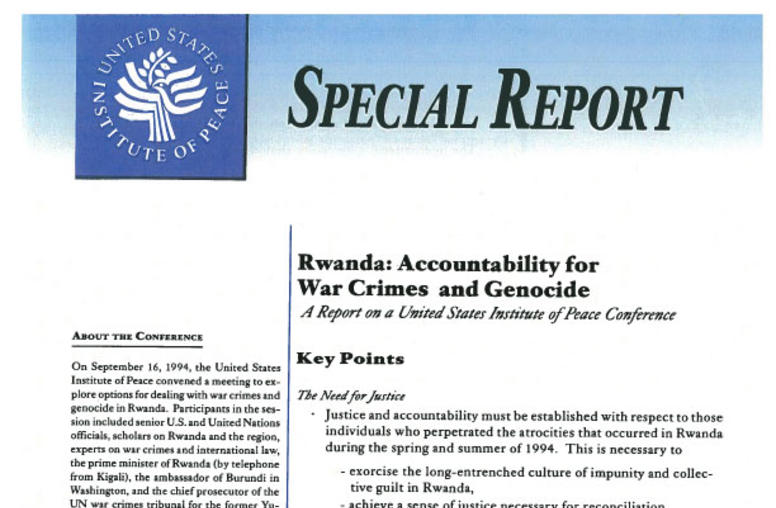
Rwanda: Accountability for War Crimes and Genocide
Before 1994, Rwanda was the most densely populated country in continental Africa. Between April and August 1994, that statistic shifted radically, as Rwanda lost 20 percent to 40 percent of its population to slaughter or exile.
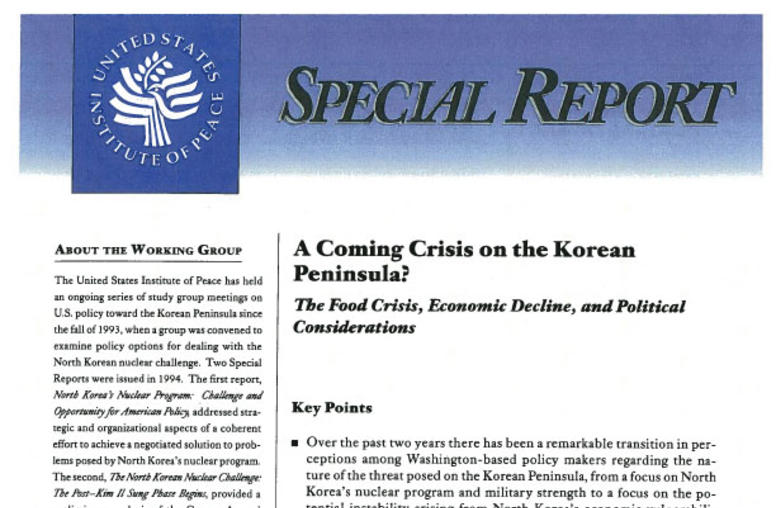
A Coming Crisis on the Korean Peninsula? The Food Crisis, Economic Decline, and Political Considerations
Over the past two years there has been a remarkable transition in perceptions among Washington-based policy makers regarding the nature of the threat posed on the Korean Peninsula, from a focus on North Korea's nuclear program and military strength to a focus on the potential instability arising from North Korea's economic vulnerabilities and political uncertainties. The major challenge for the United States is to pursue its strategic objectives in Northeast Asia by dealing with the prospect...
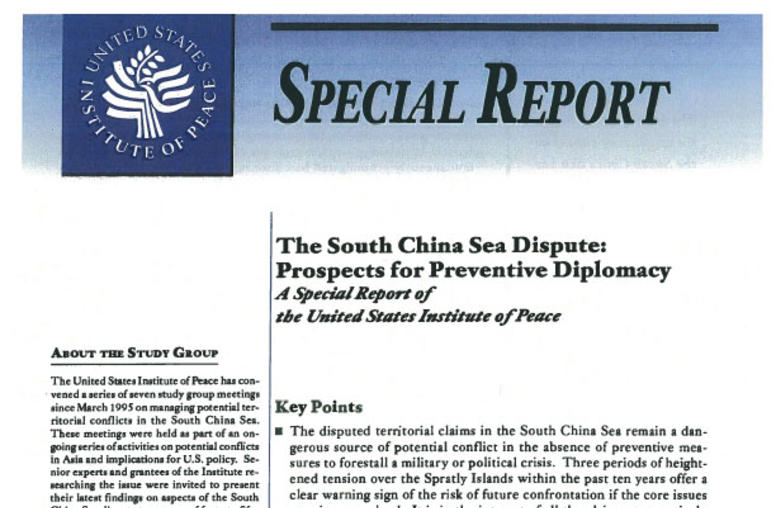
The South China Sea Dispute: Prospects for Preventive Diplomacy
The United States Institute of Peace has convened a series of seven study group meetings since March 1995 on managing potential territorial conflicts in the South China Sea. These meetings were held as part of an ongoing series of activities on potential conflicts in Asia and implications for U.S. policy. Senior experts and grantees of the Institute researching the issue were invited to present their latest findings on aspects of the South China Sea dispute to a group of forty to fifty specia...
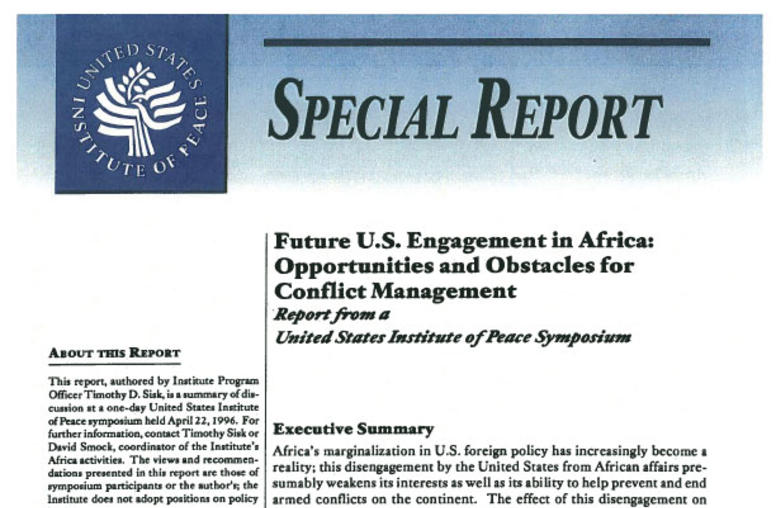
Future U.S. Engagement in Africa Opportunities and Obstacles for Conflict Management
Africa's marginalization in U.S. foreign policy has increasingly become a reality; this disengagement by the United States from African affairs presumably weakens its interests as well as its ability to help prevent and end armed conflicts on the continent.
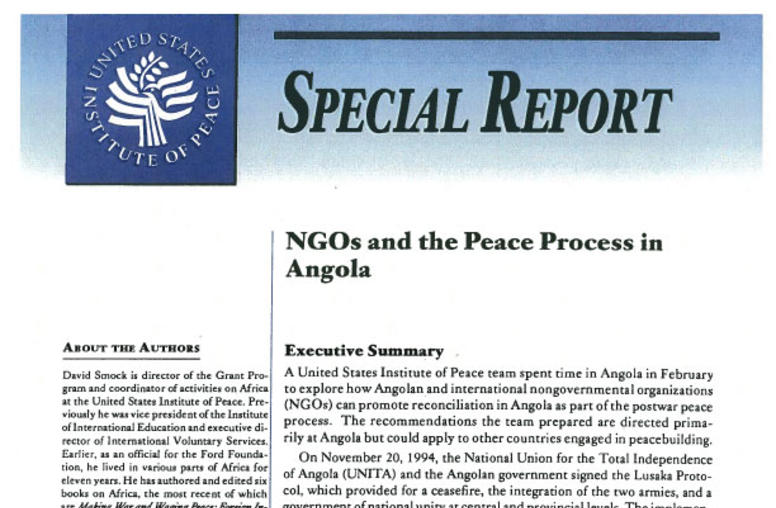
NGOs and the Peace Process in Angola
A United States Institute of Peace team spent time in Angola in February to explore how Angolan and international nongovernmental organizations (NGOs) can promote reconciliation in Angola as part of the postwar peace process. The recommendations the team prepared are directed primarily at Angola but could apply to other countries engaged in peacebuilding.
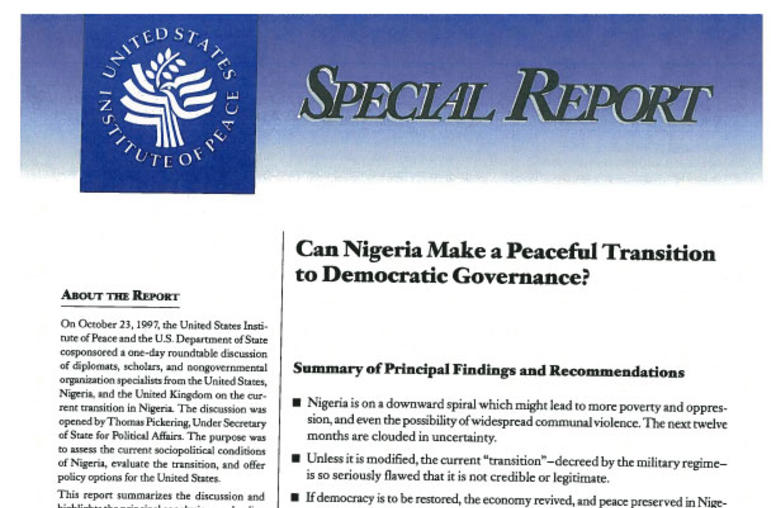
Can Nigeria Make a Peaceful Transition to Democratic Governance?
On October 23, 1997, the United States Institute of Peace and the U.S. Department of State cosponsored a one-day roundtable discussion of diplomats, scholars, and nongovernmental organization specialists from the United States, Nigeria, and the United Kingdom on the current transition in Nigeria. The purpose was to assess the current sociopolitical conditions of Nigeria, evaluate the transition, and offer policy options for the United States.
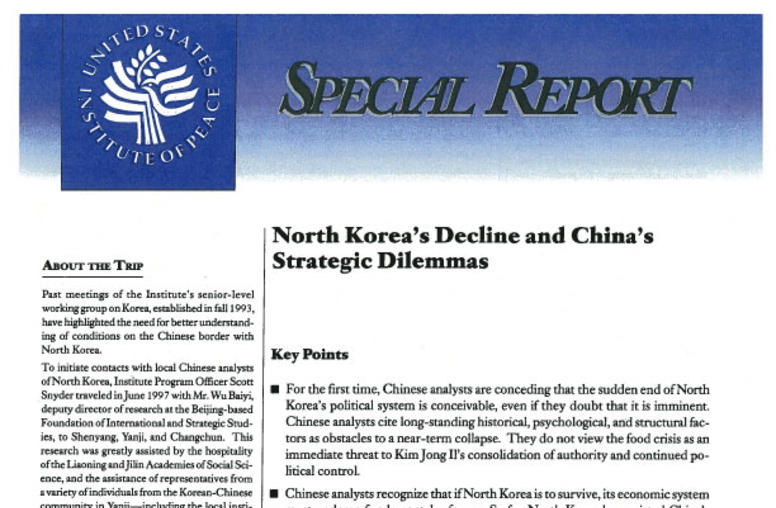
North Korea's Decline and China's Strategic Dilemmas
For the first time, Chinese analysts are conceding that the sudden end of North Korea's political system is conceivable, even if they doubt that it is imminent. Chinese analysts cite long-standing historical, psychological, and structural factors as obstacles to a near-term collapse. Chinese analysts recognize that if North Korea is to survive, its economic system must undergo fundamental reforms.
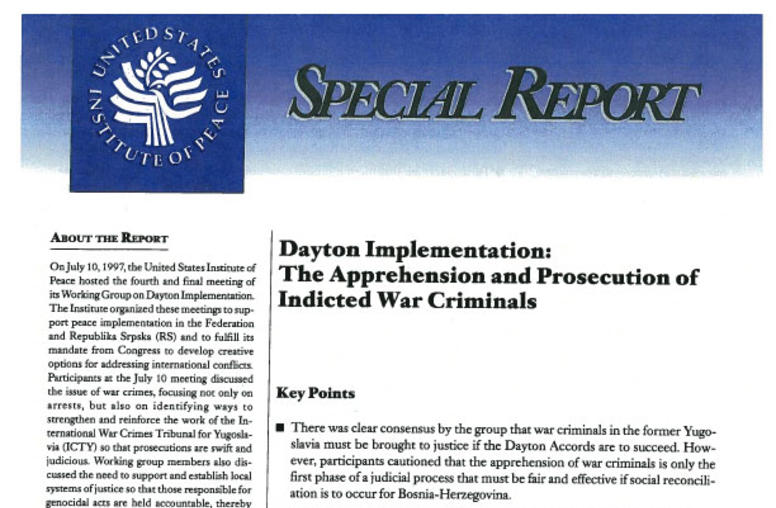
Dayton Implementation: The Apprehension and Prosecution of Indicted War Criminals
On July 10, 1997, the United States Institute of Peace hosted the fourth and final meeting of its Working Group on Dayton Implementation. The Institute organized these meetings to support peace implementation in the Federation and Republika Srpska (RS). Participants at the July 10 meeting discussed the issue of war crimes, focusing not only on arrests, but also on identifying ways to strengthen and reinforce the work of the International War Crimes Tribunal for Yugoslavia (ICTY) so that pro...